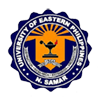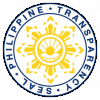The University-owned UEP Kapihan is serving nutritious, safe and wholesome food at reasonable prices to students, employees, faculty, seminars and parties.
The UEP Kapihan caters to banquets, meetings, and assemblies or any occasion. It offers packages for special occasions and social activities. It also offers banquet arrangement service.
It has a function hall which can be used for small parties, a dining hall and a veranda. The UEP Kapihan is also used as a laboratory facility of the BSHE and BEEd HE students of the College of Education and the BSHRM students of the College of Business Administration.
Private restaurants, bakeshops, canteens and eateries also abound in the surrounding school buildings.
Admission Requirements
Incoming freshmen and bona fide female undergraduate students of the University who desire to reside at the Ladies Dormitory shall apply directly to the Dormitory Manager by filing up proper form. If possible they shall be accompanied by their parents or guardian for interview and guidance relative to the rules and regulations of the dormitory. They shall bring with them a certification of good moral character from the principal of the school where they graduated.
Aside from the certificate of good moral character, the admission of applicants shall be subject to the following list of priorities:
• Students with full academic load
• Student-applicants coming from far places shall be given preference
Accommodation
• Student-residents shall submit their class schedules or true copies thereof to the Dormitory Manager a week after the opening of classes.
• Rooms shall be kept clean, spic and span by their occupants subject to daily inspection by the Dormitory Manager. General cleaning of living rooms
• Only parents, guardian or relatives shall be allowed to visit the student-residents during visiting hours scheduled under part 4 below but in no case shall they be allowed to stay overnight in the dormitory.
• The following schedule for study and visiting hours shall be strictly observed:
• Study hour (daily) – 7:00 pm to 12:00 pm or thereafter
• Silence shall be observed during and after study period
• Visiting hours – 5:00 pm to 7:00 pm (Monday to Friday), 9:00 am to 11:00 am (Saturday and Sunday), 4:00 pm to 6:00 pm (Holidays)
• Every resident of the dormitory should:
• be fire safety conscious and handle fire and other inflammable material with extra care and caution.
• endeavor to help maintain the vegetable or flower garden of the dormitory.
• secure the Dormitory Manager permission before leaving the campus or going out at night; provided that residents may only leave the dorm at night when they are properly chaperoned or in groups. When going out of the campus they shall sign a logbook and upon checking in, present a letter or a certification from the party visited that she stayed with them during the period stated in the logbook.
• keep toilet and bathroom facilities clean after using it.
• exert every effort to maintain peace and order in the dorm to cultivate respect, courtesy and harmonious relationship with residents and superiors.
• take up with the school authorities concerned, through the dormitory Manager all problems and or complaints concerning residence or life in the dormitory.
• strictly adhere to rules and regulations and other policies promulgated by the administration of the school to protect the interest of the university.
Private Dormitories
There are private dormitories and boarding houses that can accommodate students in the campus. The Auxiliary Services and Business Affairs Unit ensures the accreditation of the boarding houses.
The Office of the Sports Director coordinates with athletic managers and sports coordinators in the different colleges in the implementation of intramurals and extramural sports program such as the Annual UEPAA Games and SCUAA Games.
The cultural component of the University is handled by the Office of the Director for Cultural Affairs. Under the office is the University Performing Arts Organization (UPAO), a pool of talented students in the fields of dance, music, visual arts and theater. The organization encourages students to develop and improve their talents and skills and instill among them the pride of our cultural heritage. The UPAO conducts auditions during the first few weeks of the school year.
Aside from the UPAO, other colleges have performing arts groups which provide intermission numbers during the college’s programs. Some of these performing arts groups also perform numbers during university programs and the Culturama, a cultural show sponsored by the University Cultural Affairs Unit at the end of the school year, aside from the exposition of students’ talents to other towns of the province.
Campus Ministry Organization
The Campus Ministry Organization (CMO), in its holistic approach towards formation of young people, has a wide-range of involvement and participation – from the local area (university-wide and province-wide) to the national front programs. Aside from their on-going programs and activities, the CMO works with other communities, movements and groups as organizers, implementers or support teams for various programs and activities.
The Campus Ministry Office serves the spiritual needs of the students. It provides spiritual services to students of different denominational groups who profess themselves as Christians. It aims to provide Christian formation that is relevant to the time in the form of Bible study and prayer groups, Christian leadership training seminars, talks, recollections, retreats and liturgical celebrations. It strives to be ecumenical in outreach.
Security Services
The University ensures the safety and security of the members of the academic community. The University Security Unit, located at the front of the Administration Building, ensures 24/7 security with its detailed uniformed security personnel.
Gender mainstreaming is one of the major strategies in educating and informing various sectors of the society on the need to recognize and respect rights of women and men. Gender mainstreaming in higher education is therefore essential not only to individual but also national development, higher education being the central site for facilitating the skills, knowledge and expertise important to economic and social development.
The guidelines of CHED Memorandum Order No. 01 series of 2015 entitled “Establishing the Policies and Guidelines on Gender and Development in the Commission on Higher Education and Higher Education Institutions (HEIs) provides for the inclusion of enabling mechanisms in HEIs and the integration of the principles of gender equality in the four-fold functions of higher education.
In the University, Gender and Development activities is the prime mandate of the Gender and Development (GAD) Center. Activities spearheaded by the Center, and/or in coordination with other units, among others are:
1. Orientation on GAD principles during Orientation Programs in the different Colleges
2. Seminars/symposiums on the implementation of various laws related to GAD, e.g. Magna Carta for Women, Anti-Sexual Harassment Law, Early pregnancy, Anti-bullying, VAWC, Anti-photo and video voyeurism, Gender sensitivity, HIV/AIDS, Responsible courtship and parentship, among others
3. Facilitation of resolution of cases presented to the Committee on Decorum and Investigation
4. Gender-based counseling
Rule II Section 7 of the Implementing Rules of the Republic Act 10931 or the Universal Access for Quality Tertiary Education Act provides that all SUCs, LUCs and TVET institutions shall formulate and implement affirmative action programs to enhance access of disadvantaged students, such as Lumads, Muslims, and other indigenous peoples; persons with disabilities; students from public schools; and students from depressed areas. These affirmative action programs shall be approved by the respective governing boards and submitted to CHED within 1 year after the approval of the IRR.
To enhance access of disadvantaged students, such as Lumads, Muslims, and other indigenous people; persons with disabilities; and students from depressed areas, the following shall be observed in the university, among others:
1. Review sessions and other special learning programs such as tutorials to be conducted during summer to increase the chances of disadvantaged students in passing the entrance exam of the university.
2. More ramps and railings at the building entrance will be constructed to provide easy access for persons with disabilities.
3. For persons with physical disability (PWD), the college will assign them to return service which are not strenuous in nature.
4. Remedial instruction that will enhance their understanding and skill in subjects where they encounter difficulties with.
5. The University shall reach out to the municipality of the province through the DSWD and ask for assistance in identifying disadvantage students, indigenous people, persons with disabilities; and students from depressed areas and in disseminating the programs of the University.




